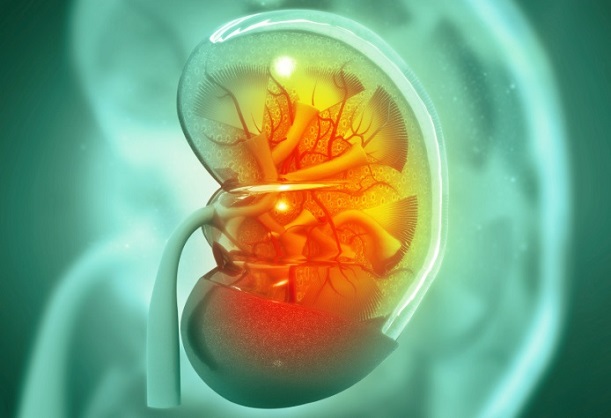German Doctors Report Rare Case of Genetic Kidney Disorder Triggered by COVID-19
Nikhil Prasad Fact checked by:Thailand Medical News Team Jun 16, 2025 8 months, 2 weeks, 1 day, 23 hours, 30 minutes ago
Medical News: In a striking new medical case from Germany, doctors have documented how a previously healthy woman developed a rare and life-threatening kidney disorder just one month after recovering from COVID-19. The condition, known as atypical hemolytic uremic syndrome (aHUS), is a rare form of a blood vessel disease called complement-mediated thrombotic microangiopathy. It causes blood clots in small vessels, leading to kidney failure, anemia, and low platelet counts.
 German Doctors Report Rare Case of Genetic Kidney Disorder Triggered by COVID-19
German Doctors Report Rare Case of Genetic Kidney Disorder Triggered by COVID-19
The patient, a 41-year-old unvaccinated Caucasian woman, had no prior medical conditions when she began experiencing abdominal pain and fatigue three weeks after a mild SARS-CoV-2 infection. Her local doctor discovered that she had acute kidney injury and anemia. She was quickly admitted to the University Hospital Münster. This
Medical News report covers the details of what turned out to be a life-saving diagnosis and treatment process.
The medical team, consisting of Dr. Malte Krakow, Dr. Johanna H. Hinrichs, Dr. Judit Horvath, Dr. Hermann Pavenstädt, and Dr. Marcus Brand, all from the University Hospital Münster in Germany, performed extensive lab tests, a kidney biopsy, and genetic screening. They found a pathogenic mutation in the complement factor H (CFH) gene — a genetic defect that disrupts the immune system’s ability to regulate itself and can lead to uncontrolled inflammation and damage in blood vessels, especially in the kidneys.
COVID-19 as the Suspected Trigger
Although mutations in CFH are known to increase susceptibility to aHUS, they do not always cause disease on their own. A trigger is usually needed — and in this case, all signs pointed to the SARS-CoV-2 infection. The researchers ruled out other known triggers such as medications, malignancies, or other infections. The presence of the c.3572C>T mutation in the CFH gene, inherited in autosomal fashion, was confirmed in her sister and children — but none had developed kidney issues. This suggested that COVID-19 likely acted as the environmental spark that ignited the disease.
The patient’s condition deteriorated rapidly, with high levels of lactate dehydrogenase (LDH), no haptoglobin, anemia, and the presence of fragmented red cells (schistocytes) in her blood. Kidney biopsy confirmed thrombotic microangiopathy — the hallmark of aHUS. Testing showed a reduction in total complement activity, and other potential causes such as thrombotic thrombocytopenic purpura (TTP) or STEC-HUS were ruled out.
Aggressive Treatment Brings Dramatic Improvement
Doctors immediately began treatment with plasma exchange and high-dose steroids. Once aHUS was diagnosed, the team started therapy with the complement C5 inhibitor eculizumab, a drug that blocks a specific part of the immune system responsible for the damage. She was later transitioned to ravulizumab, a longer-acting version of the drug, to reduce the treatment burden.
Rem
arkably, her kidney function improved steadily, and within two months, her protein levels returned to normal and dialysis was avoided. Even when she got reinfected with SARS-CoV-2 six months later, her kidneys remained stable — thanks to the ongoing treatment with complement inhibitors.
A Dangerous Gene Protein Interaction
The CFH mutation affects the body's ability to control a protein called C3b, leading to dangerous immune overactivity. Without proper regulation, this cascade leads to clotting, tissue damage, and in some cases, irreversible kidney injury. This case offers further evidence that COVID-19 can directly trigger this immune misfire in people who carry genetic vulnerabilities.
Researchers noted that even though this mutation can be found in family members, the disease may only appear when environmental factors like infections push the immune system into overdrive. The incomplete penetrance of the mutation means it doesn't always cause disease — but when it does, outcomes can be severe if left untreated.
Conclusion
This case reinforces the growing evidence that COVID-19 is more than just a respiratory virus. It can unleash complex immune reactions and trigger life-threatening conditions like atypical hemolytic uremic syndrome in individuals with hidden genetic risks. Early genetic testing, comprehensive diagnosis, and the immediate use of complement inhibitors can make the difference between recovery and permanent kidney failure. This unique case also underlines the need for increased awareness about how SARS-CoV-2 can interact with the immune system far beyond its known symptoms. The study opens doors for further investigation into the role of viral infections in uncovering silent genetic disorders.
The study findings were published in the peer-reviewed journal: Case Reports in Nephrology and Dialysis
https://karger.com/cnd/article/15/1/119/926270/Atypical-Hemolytic-Uremic-Syndrome-Complement
For the latest COVID-19 News, keep on logging to Thailand
Medical News
Read Also:
https://www.thailandmedical.news/news/covid-19-infection-triggers-different-kidney-damage-patterns-depending-on-existing-kidney-health
https://www.thailandmedical.news/news/cd4-t-cells-and-the-il-6-amplifier-behind-covid-19-associated-glomerulonephritis
https://www.thailandmedical.news/news/covid-19-mrna-vaccine-can-trigger-primary-membranous-nephropathy-in-those-with-pre-existing-autoimmune-issues
